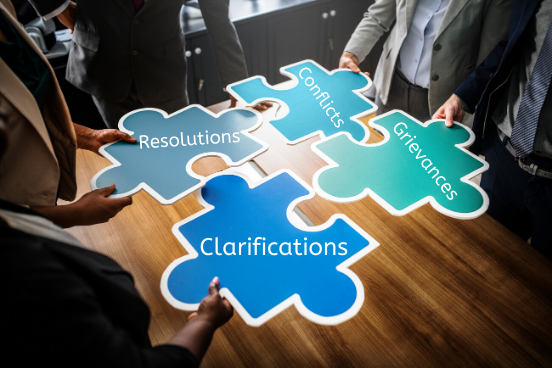Why Past Accomplishments Don’t Guarantee Future Success
Remember your first day at work? Do you recall being nervous and excited, all at the same time? Imagining what you would do versus what you would achieve filled your mind with unpredictable scenarios. You spent days trying to understand the work culture around you, and how to you respond to your colleagues. Along the way, you learned to overcome setbacks while working towards achieving your targets and goals.

Today, you probably can’t believe how far you’ve come. Your successes have enabled you to develop skills to climb higher. While you can certainly be proud of these accomplishments, don’t get complacent. As you set out to conquer new horizons, you’ll need new skills and perspectives to achieve success.
You’ve reached a higher level, what lies ahead?
Let’s say for instance, you thrive under pressure. And then let’s say this trait has been recognized by your superiors, who decide to give you more responsibilities, in addition to your current role.

Since you’ve shown grit, you are now managing a team. You find yourself at the epicentre of assessing each team member on the basis of their strengths and weaknesses.
While you become the voice of your team, you’re also the key to negotiating and managing deals, the company’s leadership and perhaps even outside stakeholders. Almost always, you’ll be expected to make it big for the organization, land a project, outshine and continue to do better. Most likely, this new role comes without a manual. You don’t have any formal guidance but only mistakes to teach you. Oh, and you’re always going to have to take one for the team. Because, while the team’s successes are always attributed to everyone, each person’s mistakes are also your responsibility. So, we suggest you learn with the team to achieve goals and share your success together.
Hygiene check: Delegate the task but review it
While it’s good to get some work off your hands, ironically, you might find it challenging to do so. As you transition into higher levels of work, you will have to build the ability to delegate and review. This is critical but often hard to do in practice. You may wonder: Will your team carry out successfully what you delegated? If they don’t, how do you manage the situation?

You might be tempted to take the high road of performing the task yourself to be done with it. It’s easier to DIY instead of doing the unthinkable – sitting down with a team member to help them understand your expectations. Falling prey to this temptation of DIY will leave you in a tight position, racing against time and gasping for a break. So, learning the art of delegation takes practice but, once mastered, it can be both rewarding and liberating.
Another way to unleash your team’s potential is to build a list of learning options for them. Once you assign the learning list to your team members, you can also track their progress. This will help build your team’s capability and also build trust in delegating tasks.
Be a problem solver: Address issues and work towards resolving them
There was a time when you looked up to your superiors for help, getting your questions clarified, and having your issues managed. Now, welcome to the other side.
As a manager or team leader, you’re going to be addressing issues of both your team members and supervisors. You’ll be tying up loose ends, finding yourself caught up more in resolving issues than completing daily tasks. You’re almost standing in the shoes of the one who steers the ship – the captain. Although, you’re not quite there yet, it’s pretty much where you’re headed.
Build a bridge: Assess your team members, clients and their issues
Assessing those you work with and work for will become a part and parcel of your daily tasks. You’ll begin assessing all circumstances because you’re always working towards making the best out of any situation.
Let’s say, for example, you’re searching for common ground between two conflicting perspectives, coming from your boss and your team member. Your boss has given you two weeks to come up with a sales strategy for a new client. Two weeks seems reasonable, but you know that your team is tied up with other deadline-driven work.
At the same time, your boss is adamant about not extending the timeline because he’s already committed a date to the client. So, now your next move would be to assess all the tasks, change parameters if possible and then reallocate resources in order to meet all deadlines. It’s a quandary but you have to figure it out.

You will also have to make assessments while you conduct interviews. If you need to hire a new pair of hands, what is your plan for asking questions, assessing skills, gauging motivation, understanding attitudes? Interviewing isn’t necessarily a skill set that comes easily and it certainly isn’t something you learn in college. So, get ahead of the game by checking out some interview skill learning options.
Be clear when communicating with clients
Communicating with your clients, on the other hand, demands that you be clear and efficient in your conversation. Mumbling or not displaying confidence when you speak does not engender trust in your ability to effectively deliver services and outcomes. So, prepare to sharpen your communications skills.
Relying on past accomplishments

So, as you begin to multiply accomplishments, future success will depend on what you learn. Work through the eyes of a learner while entering different phases on the job and you’ll always be ahead of the curve.
Share your experiences in the comments section. We’d love to know if you’ve entered a new phase of your professional life and how you managed it.